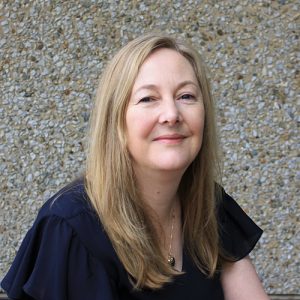
To successfully advocate for new MS therapies and resources to help combat MS, we need evidence to show the great impact MS has on individuals and the country. Dr Julie Campbell’s research will provide the world’s first integrated and objective set of MS-specific health economic tools to assist building a strong economic case to advocate for more resources.
Previously this group has prepared a landmark research report, the Health Economic Impact of Multiple Sclerosis in Australia in 2017 report, which analysed the cost of MS in Australia both to the individual and the general Australian population. It showed that, while the number of Australians living with MS continues to rise, the course of the disease is shifting with more people able to stay in work and needing less care and support as a result of newer and more readily available medications. The report also found that the costs for people living with more advanced MS are incredibly high, more than triple per person compared to those with milder disease. The quality-of-life impact for people living with severe disability is comparable to, or even greater than that reported for terminal metastatic cancer, chronic kidney disease and severe heart disease.
Therefore, to optimise the chance of getting decision-makers to back worthwhile treatments and interventions to halt the progression of disease severity, or to prevent the disease from occurring in the first place, Dr Campbell and her team will develop a suite of health economics tools that will provide evidence which can be used to lobby for more resources and support in the MS sector. This comprehensive and integrated suite of tools will also study the costs and quality of life impacts for progressive onset MS specifically.
COVID-19 restrictions impacted on the study just as it was getting started, but despite this, Dr Campbell and her team have gathered the data needed to begin understanding the effects of MS on quality of life and ways that this can be reported by people living with MS.
As part of her work, Dr Campbell investigated the responses to the quality of life survey as part of the Australian MS Longitudinal study (AMSLS). A total of 1,683 people living with MS responded to the study questions. Given the high response rate, the data collected has been so rich that she will be able to extend the study to answer more questions than initially planned, including COVID-19 related questions to help people with MS during the ongoing pandemic and beyond.
Dr Campbell’s work has shown that a new psychosocial measure is interchangeable with the Australian Quality of Life survey. This new measure is substantially shorter than the Australian Quality of Life survey and her work supports the use of this new measure when participant burden is an issue.
Using the COVID-19 data collected in the quality of life survey, Dr Campbell and her team have found that the COVID-19 lockdown was strongly associated with higher adversity, as was disability severity, relapse-onset phenotypes, and lower age, and ultimately reduced quality of life. People living with MS who reported major adversity were more likely to report a reduction in quality of life during the COVID-19 pandemic. This work has been submitted for publication in a scientific journal.
In further COVID-19 work, Dr Campbell explored the lived experience of people living with MS during the COVID-19 pandemic. Dr Campbell found that the word ‘working’ was important for people living with MS with no disability. In contrast, the word ‘support’ resonated for people in the more severe disability. She also found that multitasking for people living with MS with milder forms of disability increased emotional stress levels particularly if they were working from home and home-schooling small children. People with severe disability raised issues of increased social isolation as a major concern. A manuscript is currently being prepared for publication in a scientific journal.
Dr Campbell also led the health economics analysis for the landmark MS Nurse Care in Australia report launched in April by MS Australia, in collaboration with the Menzies Institute for Medical Research and MS Nurses Australasia (MSNA). She was also lead author on the Health Economic Impact of Multiple Sclerosis in Australia 2021 report, commissioned by MS Australia, which was launched in February 2023.
Dr Campbell is now in the process of developing a health economic model for relapsing remitting MS and progressive MS to identify cost-effective treatments for MS, as well as the world’s first health economic MS prevention model for prevention strategies.
This work has been presented at several national and international conferences and has led to many collaborations with health economists. She is due to present her research at the International Society for Pharmacoeconomics and Outcomes Research Annual World Congress 2023, which was identified as the Top 5% Finalist for the Research Presentation Awards from over 2,100 accepted presentations.
Updated 20 March 2023
Updated: 21 January, 2020

Laboratory research that investigates scientific theories behind the possible causes, disease progression, ways to diagnose and better treat MS.

Research that builds on fundamental scientific research to develop new therapies, medical procedures or diagnostics and advances it closer to the clinic.

Clinical research is the culmination of fundamental and translational research turning those research discoveries into treatments and interventions for people with MS.

